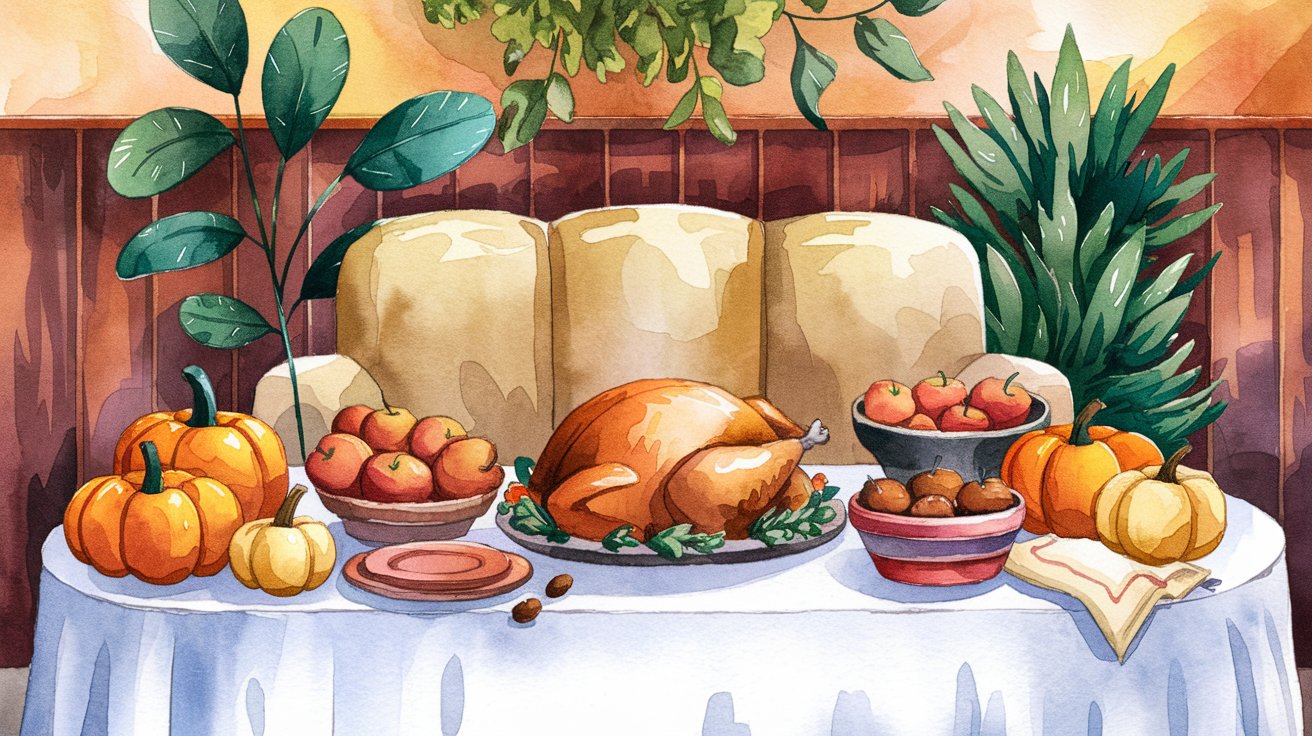When was the last time you thanked God for something small, something like a good night’s sleep, a quiet moment in a chaotic day, or the simple beauty of a sunrise or a starry night? If we are honest with ourselves, these expressions of gratitude are usually few and far between. It’s easy to overlook these everyday blessings and take them for granted. However, all these moments are valuable, and taking the time to appreciate them can profoundly impact our lives.
Thankfulness is a powerful thing, yet many of us underestimate just how much our relationship with gratitude can shape our lives. The University of Miami once did a study that demonstrates this well. In this study, participants were divided into three groups, each asked to write down events from their week. The first group noted things they were grateful for; the second focused on irritations, and the third listed events that affected their mood in any way, for better or worse.
After ten weeks, the results were quite telling. Those who focused on gratitude were more optimistic and felt better about their lives. They exercised more and visited the doctor less than those who focused on aggravations. It’s amazing how a simple shift in focus toward gratitude can lead to significant behavioral and health changes.
Other studies back this up, showing that expressing gratitude even boosts overall happiness in those around us. Couples who regularly thank each other have happier marriages, and employees feel more motivated and are more productive when their bosses acknowledge their efforts through words of affirmation and thanks. Clearly, our capacity for thankfulness touches every area of our lives, including our health, attitudes, and relationships.
But beyond all these scientific observations, gratitude should hold a special place in our spiritual lives. God emphasizes the importance of thankfulness throughout Scripture, and He desires for us to have hearts filled with gratitude.
What is Thankfulness?
So, what exactly is thankfulness? If we are going to discuss the topic, we should have a working definition. According to Merriam-Webster, it is either an expression of thanks, a consciousness of benefits received, or a state of being well-pleased. Each of these definitions is discussed in Scripture, so let’s explore each aspect and see how it connects with our faith.
Thankfulness as an Expression of Thanks
Thankfulness isn’t just a feeling; it’s a definitive action. Psalm 100 beautifully illustrates this:
Make a joyful noise unto the LORD, all ye lands. Serve the LORD with gladness: come before his presence with singing… Enter into his gates with thanksgiving, and into his courts with praise: be thankful unto him, and bless his name.
— Psalm 100:1-4
Psalm 100 invites us to celebrate and enjoy God’s blessings. Each verb in this verse, (make, serve, enter, sing, etc.) encourages us to partake in a definitive action. Serving God with gladness and coming before Him with singing are active expressions of our gratitude, not just a head-knowledge of the presence of some good in our lives. When we truly recognize that God is good and His mercy is everlasting, thankfulness naturally overflows through every aspect of our lives.
Did you know one of those aspects is our relationship to anxiety? The Bible reveals to us that expressing gratitude is God’s pathway to peace in times of anxiety. In Philippians 4:6-7, we’re encouraged:
Be anxious for nothing; but in everything by prayer and supplication with thanksgiving let your requests be made known unto God. And the peace of God, which surpasses all understanding, will guard your hearts and minds through Christ Jesus.
When we bring our needs to God with a thankful heart, we shift our focus from what’s lacking to what’s already been provided, forcing us to recognize the good we already have as a downpayment for the good to come. This shift can alleviate our anxiety and fill us with peace that doesn’t always make logical sense in the moment but can be felt deeply within our souls. If God has never let us down, he will surely come through once more.
Thankfulness as a Consciousness of Benefits Received
Being thankful also means being aware of the good things in our lives. It’s an active choice to recognize and appreciate our blessings. Psalm 105:1-3 encourages us:
O give thanks unto the LORD; call upon his name: make known his deeds among the people. Sing unto him… talk ye of all his wondrous works.
Thankfulness here is proactive—it’s about acknowledging God’s deeds and sharing them with others. It’s not just noticing the good but celebrating it. Not only when we are in the best moments of our lives but also at our lowest. The Bible calls us to be thankful in every situation. 1 Thessalonians 5:18 says:
In everything give thanks: for this is the will of God in Christ Jesus concerning you.
Does this mean we’re supposed to be grateful for things like traffic jams or burnt toast? Maybe not for the inconvenience itself, but even in those moments, there’s something we can appreciate. While burning our toast may bum us out, we should remind ourselves in that disappointment, that we are still blessed. Yes, maybe we have lost a slice of toast, but most of us have more bread and the means to prepare another slice. Others are not as fortunate and would give an arm or a leg to have the comfort we experience. When we get stuck in traffic, we do not have to enjoy the inconvenience itself, but we should recognize the privilege we have to experience such an event. Many cannot afford a car to begin with and would celebrate an opportunity to be stuck in traffic for the first time.
Many of us live in such comfort that we become blind to our excess, and our lives become mundane, boring, and empty of gratitude because of it. We often take for granted daily blessings like clean water, a comfortable bed, food on the table, or our relationships with others. We ought to be thankful for the privilege of being bored and having an opportunity to formulate a routine in the first place. We can cultivate a deeper gratitude by stepping aside and purposefully acknowledging these gifts. By doing so, we can change our negativity into a positive attitude and drastically improve our outlook on our lives.
We can even go as far as being thankful for things we can’t even see. In 2 Kings 6:15-17, when Elisha’s servant was terrified by an enemy army surrounding them. Elisha prayed for God to open his servant’s eyes, and suddenly, the servant saw that there was an entire heavenly army protecting them. This should be a reminder to us that God’s blessings and protections often operate beyond our senses. Though we cannot see it, God is always working in our lives to achieve our greatest good. Recognizing this truth can fill us with gratitude in all moments.
Thankfulness as a State of Being Well-Pleased
Finally, thankfulness is also about finding satisfaction and contentment. But how do we achieve that? Psalm 37:3-5 offers guidance:
Trust in the LORD, and do good… Delight yourself also in the LORD, and He shall give you the desires of your heart.
When we find our joy in God, and our desires align with His, we experience true satisfaction. Life becomes less about accumulating things and more about nurturing our relationship with Him. In Philippians 4:11-13, Paul shares:
I have learned, in whatsoever state I am, therewith to be content… I can do all things through Christ which strengtheneth me.
And again 1 Timothy 6:6, Paul tells us:
Godliness with contentment is great gain.
Contentment is like fertile soil where thankfulness can grow. However, the world constantly tells us we need more: Buy, buy, buy! Get, get, get! Day in and day out. So, how do we cultivate our soil to grow an attitude of gratitude despite this?
One way is to avoid comparisons. 2 Corinthians 10:12 warns that comparing ourselves to others is unwise. As Theodore Roosevelt famously said, "Comparison is the thief of joy." Instead of focusing on what you don’t have that others do, focus on what you do have right now. When you appreciate what you do have, you’ll quickly learn that your “have” list is a lot longer than your “have-not” list.
Putting Gratitude into Practice
So, how can we foster a spirit of gratitude in our daily lives? Here are two challenges to consider:
- Challenge 1: Each day, write down 3-5 unique things you’re thankful for. They can be simple or significant. The only important things are that they’re something you haven’t listed before and that they were a positive experience. Writing down the good helps remind us in the future of how much we have been blessed and reinforces a thankful attitude.
- Challenge 2: Think of someone who has encouraged or helped you. Reach out and thank them specifically for what they’ve done. Don’t hesitate to mention the details, as it makes your gratitude more meaningful. Not only will this help you experience thankfulness personally, but it will also be an encouragement to someone else.
By embracing these practices, we can align ourselves with God’s desire for us to have grateful hearts. May we all be people who are constantly involved with thankfulness. God wants us to have a heart of gratitude. Because when we cultivate gratitude, we align ourselves with God’s will, unlock peace, and find satisfaction—not in what we have, but in who God is.



